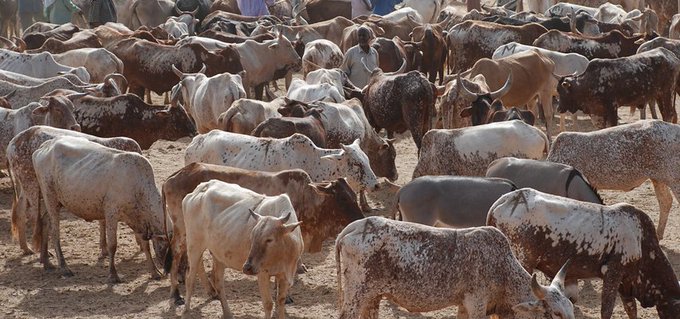

The government has defended its planned massive campaign to vaccinate nearly 22 million livestock across the country.
The state urged the public to disregard reports it terms malicious and unfounded regarding the planned mass vaccination of livestock scheduled for next year.
“As global demand for animal products continues to rise, the health and well-being of livestock are of paramount importance. Livestock plays a critical role in the economies and livelihoods of millions of people worldwide, providing food, income, and employment,’’ said Obadia Njagi, a Director of Veterinary Services.
“To ensure the health of animals and the safety of the food supply, the vaccination of livestock is one of the most effective and sustainable strategies available.”
In a statement, the State Department of Livestock said the vaccination programme is a critical initiative to protect animal health and safeguard the food supply.
“As the competent authority in charge of Veterinary Services and the delegate to the World Organization for Animal Health (WOAH) I call upon the public to disregard and ignore the malicious and unfounded allegations that this noble initiative by the Government is related to the global warming,” said Directorate of Veterinary Services.
The national vaccination initiative, announced by the President last week aims to vaccinate 22 million cattle against Foot and Mouth Disease (FMD) and 50 million sheep and goats against Peste des Petits Ruminants (PPR).
The government was responding to claims by a section of Azimio leaders led by Wiper boss Kalonzo Musyoka who claimed that the government was advancing a sinister motive through the vaccination.
“The program, slated to roll out nationwide in the coming months, is being marketed as part of the government’s environmental protection efforts. However, this proposal reeks of a sinister foreign agenda and is deeply concerning to pastoralist communities and the nation at large,” Kalonzo said.
The Wiper leader urged Kenyans to reject the proposal, claiming the vaccines would alter the genetic structure of livestock, ultimately causing animals to "cease emitting methane gas into the atmosphere".
According to Kalonzo, this could lead to severe health and environmental consequences.
The government stressed the importance of collaboration among governments, veterinarians, and farmers to ensure the success of the vaccination programme.
“It is imperative that governments, veterinarians, and farmers must work together to ensure that livestock vaccination programs are accessible, well-funded, and effectively implemented,” he said.
“Public awareness campaigns are essential to educate farmers and the wider community about the importance of vaccination, the safety of vaccines, and the proper vaccination schedules for different types of livestock.”
The vaccines will be supplied by the Kenya Vaccine Production Institute (KEVEVAPI), which holds a Good Manufacturing Practice (GMP) certification.
“The ultimate aim is to achieve freedom from FMD with vaccination and eradicate PPR. Together, we can ensure that vaccination remains an essential tool in building a more resilient, sustainable, and prosperous livestock sector” he noted.
Senate Majority leader Aaron Cheruiyot rubbished claims by a section of Azimio leaders that the programme has sinister motives.
“The program has everything to do with food safety, animal
welfare and trade facilitation and not climate action as purported,’’ Cheruiyot.











